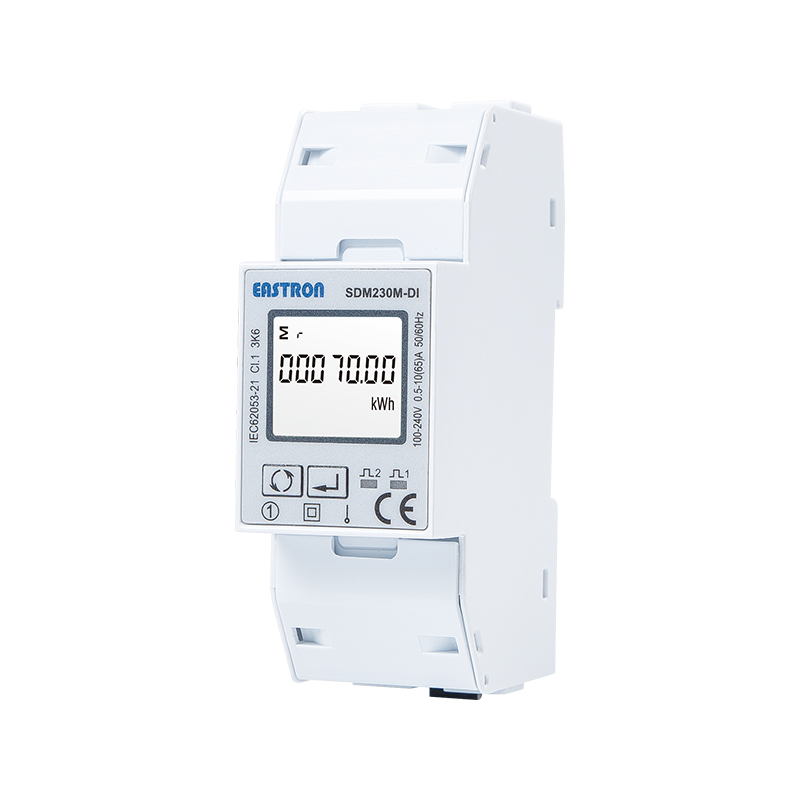Product Consultation
Your email address will not be published. Required fields are marked *
Energy meters play a critical role in modern electricity usage by providing accurate measurements of power consumption. Whether you’re a homeowner aiming to reduce your monthly utility bills or a business trying to manage operational costs, knowing how energy meters work—and why that knowledge is valuable—can help you make informed decisions about energy efficiency and resource planning.
What Is an Energy Meter?
An energy meter, also known as an electricity meter, is a device that measures the amount of electrical energy consumed by a residence, business, or electrically powered equipment. These readings are typically expressed in kilowatt-hours (kWh), which is the standard billing unit used by utility providers. There are various types of energy meters, including electromechanical meters, electronic (digital) meters, smart meters, and prepaid meters.
How Do Energy Meters Work?
The working principle of an energy meter depends on its type:
1. Electromechanical Energy Meters
These traditional meters operate using a rotating aluminum disc that spins in proportion to the power consumed. The disc's motion is generated through electromagnetic induction. Gears connected to the disc drive a mechanical register that displays total energy usage.
2. Electronic Energy Meters
Digital or electronic meters use microcontrollers and sensors to measure voltage and current. These devices calculate power consumption by sampling these values multiple times per second. The results are displayed on a digital screen, often with additional features like peak usage tracking and time-of-use data.
3. Smart Meters
Smart meters are an advanced version of digital meters with communication capabilities. They not only measure electricity usage but also transmit data in real-time to utility providers and users. This enables two-way communication, remote readings, outage detection, and dynamic pricing models.
4. Prepaid Energy Meters
These meters allow users to pay for electricity before usage. Common in rental properties or in areas where credit-based billing is impractical, prepaid meters help users monitor and manage their energy consumption more consciously.
Why You Should Know How Energy Meters Work
1. Monitor and Control Your Energy Usage
Understanding how your meter records electricity consumption enables you to track which appliances consume the most power. This awareness can guide changes in usage habits, potentially lowering your energy bill.
2. Identify Energy Inefficiencies
By observing fluctuations and unusual spikes in readings, you can detect inefficient systems, faulty appliances, or energy leaks in your electrical infrastructure.
3. Take Advantage of Tariff Structures
Some energy meters, especially smart ones, can differentiate between peak and off-peak usage. Knowing when electricity costs less allows you to schedule high-consumption tasks (like washing and heating) during cheaper time slots.
4. Improve Energy Budgeting
Businesses, in particular, benefit from accurate energy data. With real-time or interval-based readings, managers can analyze energy consumption trends and set more accurate budgets.
5. Support Renewable Energy Integration
Smart energy meters can work in conjunction with solar panels, wind turbines, or other renewable sources. They help monitor not just consumption but also production and feed-in to the grid—crucial for sustainable energy practices.
Choosing the Right Type of Energy Meter
When selecting an energy meter, consider the following:
Purpose of use (residential, commercial, industrial)
Type of current (single-phase or three-phase)
Level of detail needed (basic measurement vs. real-time analytics)
Communication features (required for smart grid integration)
Billing model (postpaid or prepaid)
Professional installation and calibration are essential to ensure accurate readings. Many governments and utility companies regulate the certification and periodic testing of meters to maintain consistency and fairness in billing.

Understanding how energy meters work is more than just technical knowledge—it’s a practical advantage for cost control, energy efficiency, and future planning. Whether you're tracking your household energy use or managing consumption across multiple facilities, the insights provided by your meter are valuable tools. As technology evolves and sustainability becomes a priority, staying informed about your energy usage through modern metering solutions is increasingly important.
By integrating the right type of meter and using the data it provides, you’re not just reading numbers—you’re gaining control over one of your most essential resources.
Your email address will not be published. Required fields are marked *
We develop and produce high performance electricity meters, power analyzers, current sensors, communication modules and management systems. China Custom Smart Meters Manufacturers and Factory
Address:NO 52, Dongjin Road, Nanhu, Jiaxing, Zhejiang, China
Copyright @ Eastron Electronic Co., Ltd. All rights reserved Electricity Meters Manufacturers
